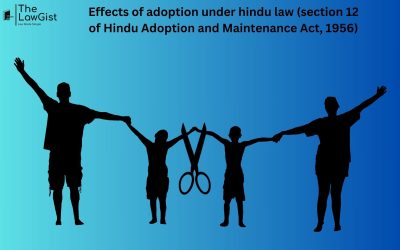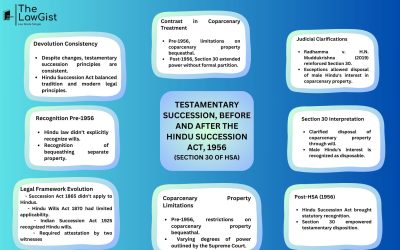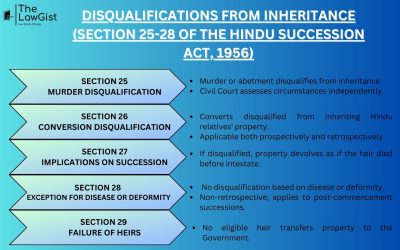INTRODUCTION
The maintenance under Hindu Adoption and Maintenance Act addresses various aspects within the Hindu community. This comprehensive discussion delves into the nuances of maintenance, covering categories such as maintenance of spouses, widowed daughters-in-law, children, aged parents, and dependents of the deceased.
MAINTENANCE DEFINED
Maintenance, as per Section 3(b) of the Hindu Adoption and Maintenance Act,1956 encompasses financial support covering food, clothing, shelter, education, and medical expenses. This support is typically provided by a husband or father, ensuring the basic necessities of life are met.
MAINTENANCE OF WIFE UNDER HINDU LAW ( SECTION 18 OF THE HINDU ADOPTIONS AND MAINTENANCE ACT, 1956)
- Duration of Maintenance
Post-divorce, a wife is entitled to maintenance until she gets married again. This provision aims to sustain her lifestyle and comfort experienced during the marriage.
- Determining Maintenance Amount
The court, according to the earning capacity of the husband, decides the maintenance amount. It can vary based on the husband’s financial status, ensuring a balance between providing for the wife’s accustomed lifestyle and reasonable expenses.
- Conditions for Entitlement
Section 18(2) outlines circumstances where a wife can claim maintenance, including desertion, cruelty, contagious diseases, multiple marriages, conversion, or other reasonable grounds justifying living separately.
- Exceptions to Maintenance
Section 18(3) lists exceptions, such as a wife not entitled to maintenance in cases of adultery or conversion to a non-Hindu religion.
MAINTENANCE OF WIDOWED DAUGHTERS-IN-LAW (SECTION 19 OF THE HINDU ADOPTIONS AND MAINTENANCE ACT, 1956)
- Father-in-law’s Obligation
Upon the husband’s death, the father-in-law is obligated to pay maintenance to the widowed daughter-in-law under specific conditions outlined in Section 19 of the hindu adoption and maintenance act,1956.
- Criteria for Liability
The father-in-law’s liability includes factors like the daughter-in-law’s lack of income or property to sustain herself, insufficiency of existing property, and the absence of maintenance from other sources.
MAINTENANCE OF CHILDREN AND AGED PARENTS (SECTION 20 OF THE HINDU ADOPTIONS AND MAINTENANCE ACT, 1956)
- Duty to Maintain Children
Section 20 mandates that Hindu parents, whether male or female, are obligated to maintain their children, legitimate or illegitimate, as long as they are minors.
- Extended Entitlement for Unmarried Daughters
Unmarried daughters are entitled to maintenance even after reaching the age of majority until the day they get married.
- Maintenance for Aged Parents
Parents who are old or experiencing physical or mental weakness must be maintained if they cannot sustain themselves.
- Recognition of Childless Stepmother
A childless stepmother is considered a ‘parent’ under Section 20, broadening the scope of those entitled to maintenance.
MAINTENANCE OF DEPENDENTS UNDER HINDU LAW (SECTION 22 THE HINDU ADOPTIONS AND MAINTENANCE ACT, 1956)
- Defining Dependents
Dependents, as defined in Section 21, include various relatives of the deceased, such as father, mother, widow, minor sons, unmarried daughters, and others relying on the deceased for sustenance.
- Heirs’ Obligation to Maintain
Section 22 outlines that dependents of a deceased Hindu must be maintained by his heirs using the estate inherited from the deceased.
- Distribution of Maintenance Responsibilities
In cases where multiple persons take over the deceased’s property, each is liable to maintain the dependents. The distribution is based on the value of the share they hold in the property.
DETERMINING THE AMOUNT OF MAINTENANCE UNDER HINDU LAW (SECTION 23 OF THE HINDU ADOPTIONS AND MAINTENANCE ACT, 1956)
- Judicial Discretion
Section 23 grants the court discretion to determine the amount of maintenance, considering factors like the status of parties, claims within reasonable limits, grounds for living separately, sources of income, and the number of entitled individuals.
- Specific Considerations for Other Dependents
Section 23(3) simplifies the process for determining maintenance for other dependents, considering factors like the net value of the deceased’s property, the deceased’s will, degree of relationship, dependents’ desires, sources of income, and total property value.
ALTERATION OF MAINTENANCE DUE TO CHANGE IN CIRCUMSTANCES (SECTION 25 OF THE HINDU ADOPTIONS AND MAINTENANCE ACT, 1956)
- Flexibility in Adjustments
Section 25 acknowledges the possibility of altering the maintenance amount with changing circumstances, providing flexibility in ensuring adequacy.
- Ambiguity in Section 25
Despite granting the ability to alter maintenance, Section 25 lacks specificity regarding the circumstances warranting alteration and the procedure for such adjustments.
HINDU STATUS AS A PREREQUISITE FOR MAINTENANCE CLAIM (SECTION 24 OF THE HINDU ADOPTIONS AND MAINTENANCE ACT, 1956 )
- Exclusivity to Hindus
Section 24 clarifies that only Hindus can claim maintenance under the Hindu Adoption and Maintenance Act. Those who cease to be Hindus by converting to another religion lose entitlement.
MAINTENANCE AS A CHARGE ON PROPERTY (SECTION 27 OF THE HINDU ADOPTIONS AND MAINTENANCE ACT, 1956 )
- Lack of Explicit Definition
While the Hindu Adoption and Maintenance Act doesn’t explicitly define “charge,” Section 100 of the Transfer of Property Act, 1882, offers clarity.
- Dependency on Will or Agreement
Section 27 specifies that a dependent’s claim for maintenance should not be a charge on the deceased’s estate unless otherwise provided in a will or agreement.
PRIORITY OF DEBTS (SECTION 26 OF THE HINDU ADOPTIONS AND MAINTENANCE ACT, 1956)
- Religious and Moral Duty
Section 26 highlights the religious, moral, and legal duty of dependents to prioritize clearing the deceased’s debts before using the estate for self-maintenance.
EFFECT OF PROPERTY TRANSFER ON RIGHTS TO MAINTENANCE (SECTION 28 OF THE HINDU ADOPTIONS AND MAINTENANCE ACT, 1956)
- Transferee’s Obligation
Section 28 establishes the obligation of a transferee to maintain a dependent if the transfer is made with notice of the right or if the transfer is gratuitous.
- Alignment with Transfer of Property Act
The idea aligns with Section 39 of the Transfer of Property Act, 1882, specifying the transferee’s liability based on notice and gratuitousness of the transfer.
- Limitation on Recovery
Maintenance can only be recovered from the property transferred by the original liable person and not from other properties held by the transferee.
CONCLUSION: UPHOLDING RIGHTS THROUGH THE HINDU ADOPTION AND MAINTENANCE ACT
In conclusion, the Hindu Adoption and Maintenance Act stands as a crucial legal framework safeguarding the rights of various individuals, including spouses, widowed daughters-in-law, children, aged parents, and dependents of the deceased. As we navigate through the intricacies of maintenance laws within the Hindu community, it becomes evident that the act plays a pivotal role in preventing vulnerable individuals from facing destitution, reinforcing their entitlement to financial support. Judicial pronouncements have further solidified the act, contributing to the clarity and strength of its provisions.
REFERENCE








